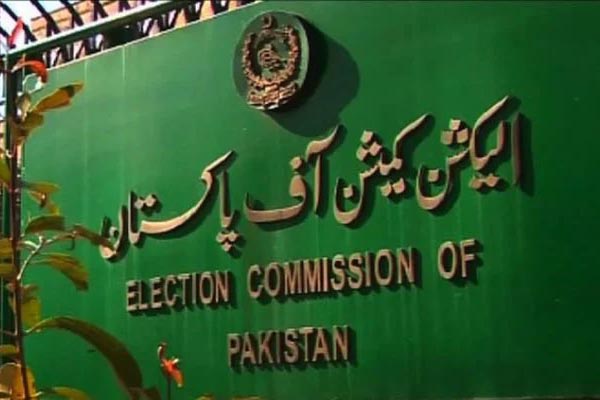
YouTube
Following the Islamabad High Court (IHC) directing the Election Commission of Pakistan (ECP) to wrap up the ousted Pakistan Tehreek-e-Insaf’s foreign funding case within 30 days, the former ruling party has ramped up efforts to delay the case even further.
Last week, the IHC rejected a petition filed by the PTI to separate party founder Akbar S. Babar from the case and order all documents related to the PTI’s funding secret. In his ruling, Justice Mohsin Akhtar Kayani stressed that the ECP’s role could not be “curtailed in any manner,” adding that “no restriction could be imposed upon the ECP to adopt any process of inquiry, investigation, scrutiny to reach out the mandate of assigned duty in terms of Article 17(3).” Consequently, the ECP has begun hearing the foreign funding case on a daily basis.
On Wednesday, the PTI approached the IHC and filed an intra-court appeal against the ruling to announce the verdict of the foreign funding case within 30 days. Contrary to its claims of being “entirely transparent,” the PTI has made it a habit to delay the proceedings in the case, which has been pending since 2014. From seeking adjournments to demanding that its case be clubbed together with other political parties, the PTI has yet to conclusively combat the perception that it is not trying to hide from the verdict. Last week, addressing a public gathering in Karachi, party Chairman Imran Khan hinted that the case could be used to prevent the party from contesting the next general elections, suggesting he is aware of the potential consequences of an unfavorable verdict.
Similarly, on Tuesday, the PTI raised objections against the ECP, by claiming it was not authorized to decide any case so long as it lacked its full strength. Due to the PTI’s refusal to work with the opposition during its time in government, the ECP currently only has two of four members, as the members from Punjab and Khyber-Pakhtunkhwa retired in 2019.
“The Constitution gives powers to the Election Commission but not to the commissioner or members,” PTI counsel Anwar Mansoor argued during the hearing. At this, Chief Election Commissioner Sikandar Raja referred to the IHC ruling and said the ECP wanted to hear the case on a daily basis to ensure it did not violate the verdict.
The PTI’s counsel, in response, expressed disappointment over the observations of the IHC and said that he would complete his arguments in three days.
‘Unconstitutional delimitation
Separately, the PTI also continued its attempts to discredit the incumbent ECP by approaching the Supreme Court to seek a declaration that the delimitation schedule announced earlier this month was “illegal” and “unconstitutional.” The petition requests the apex court to order the ECP to ensure the next general elections are in accordance with law and the Constitution and are not delayed in any form.
The PTI has been demanding “immediate” elections since it became clear that Imran Khan would lose the vote of no-confidence in the National Assembly and be ousted as prime minister. The ECP, however, has already announced that it cannot proceed to election until fresh delimitation has been done in accordance with the Constitution. It has said that the earliest it could complete the process and proceed toward elections is October.
In its petition, the PTI has maintained that the ECP’s delimitation exercise is in violation of Article 51(5), which states that seats in the National Assembly shall be allocated to each province, the tribal areas and the federal capital on the basis of population in accordance with the last preceding census officially published. Claiming that in the absence of a new census, the ECP was bound to hold elections on the basis of delimitation conducted previously, the petition argues the fresh delimitation process was unconstitutional and illegal.
